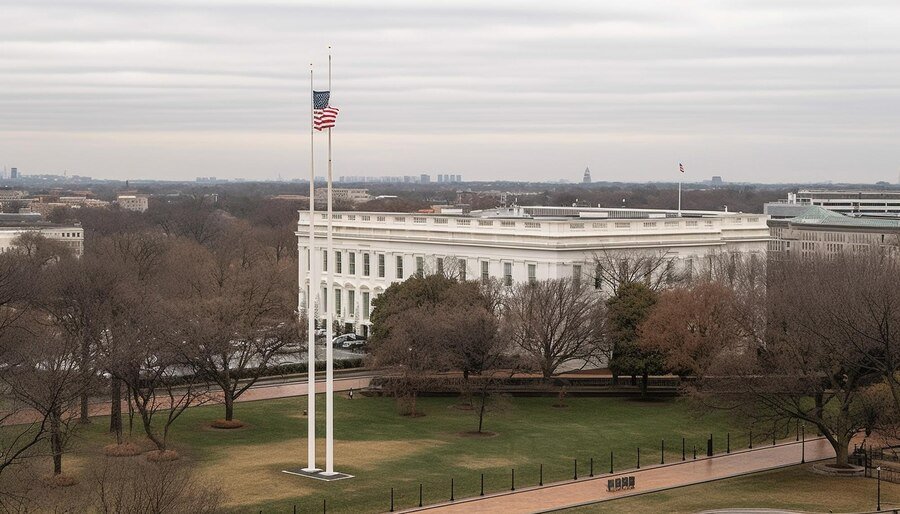Introduction
The United State from 21 USC § 387(22) is a legal term that holds significant importance in federal law. Understanding its definition is crucial for individuals and businesses operating within the jurisdiction of the United States. This article aims to explore the various aspects of the United State definition, its implications, and how it impacts different industries. By delving into examples, challenges, and controversies surrounding this term, we can gain a comprehensive understanding of its significance in the legal landscape.
Understanding the Legal Definition of the United State
To comprehend the intricacies of the United State from 21 USC § 387(22), it is essential to delve into its legal definition. According to the United States Code (USC), the United State refers to the several states, the District of Columbia, and any territory or possession of the United States. This definition is crucial as it clarifies the geographical boundaries to which federal laws apply. It establishes the jurisdiction under which federal agencies enforce regulations and statutes, ensuring consistency and uniformity across the nation.
The Importance of the United State in Federal Law
The United State’s definition carries immense significance in federal law. It acts as a framework for establishing legal authority, determining jurisdiction, and enforcing regulations consistently across the country. Federal agencies, such as the Food and Drug Administration (FDA) and the Environmental Protection Agency (EPA), rely on this definition to exercise their powers and regulate various industries. For instance, the FDA’s authority to regulate tobacco products is based on the definition of the United State outlined in 21 USC § 387(22). This legal foundation ensures that federal laws apply uniformly and effectively throughout the nation.
How the Definition of the United State Impacts Various Industries
The definition of the United State has far-reaching implications for various industries. It establishes the boundaries within which federal regulations apply, ensuring a level playing field for businesses across the country. For example, in the tobacco industry, the FDA’s authority extends to all states, territories, and possessions defined as the United State. This means that tobacco product manufacturers and retailers must comply with federal regulations, regardless of their location within the United States. Similarly, other industries such as pharmaceuticals, food and beverages, and environmental protection are impacted by this definition, ensuring consistent standards and regulations nationwide.
Examples of How the United State is Interpreted in Different Contexts
The interpretation of the United State from 21 USC § 387(22) may vary depending on the context. For instance, when it comes to taxation, the Internal Revenue Service (IRS) interprets the United State as including all states, territories, and possessions. This broader interpretation allows the IRS to levy taxes consistently throughout the nation. However, in the context of voting rights, the definition of the United State may differ. States have the authority to establish their own voting laws within the United State, which may lead to variations in the interpretation of who is eligible to vote within their jurisdiction.
Potential Challenges and Controversies Surrounding the Definition of the United State
The definition of the United State is not without its challenges and controversies. One potential challenge lies in the evolving nature of federalism, with some arguing for a more decentralized approach that grants greater autonomy to individual states. This could potentially impact the interpretation and application of the United State definition, leading to inconsistencies across different jurisdictions. Additionally, controversies may arise when federal regulations clash with state laws, prompting debates over federal supremacy and states’ rights. These challenges and controversies highlight the complexities inherent in defining the United State within the framework of federal law.
The Implications of the United State Definition for Businesses and Individuals
The definition of the United State has significant implications for both businesses and individuals. For businesses operating within the United States, it means adhering to federal regulations regardless of their physical location. This ensures a level playing field and protects consumers from potential disparities in product safety and quality. Individuals, on the other hand, benefit from consistent legal protections and rights that extend throughout the United State. This definition creates a unified legal framework that promotes fairness, equality, and stability across the nation.
Key Takeaways and Implications of 21 USC § 387(22)
The United State from 21 USC § 387(22) is a crucial legal term that defines the geographical boundaries to which federal laws apply. Its definition impacts various industries, ensuring consistent regulations and a level playing field for businesses across the country. While challenges and controversies may arise, the United States definition plays a vital role in maintaining uniformity and stability within the legal landscape. Businesses and individuals alike benefit from the implications of this definition, which establishes a unified framework for legal protections and rights throughout the United State.
Resources for Further Understanding the United State Definition
For further understanding of the United State definition and its implications, various resources are available. Legal scholars and practitioners often publish articles, books, and academic papers that delve into the intricacies of federal law and its application within the United States. Additionally, government websites, such as those of federal agencies like the FDA and the IRS, provide information on how the United State definition is interpreted and applied within their respective jurisdictions. Accessing these resources can deepen one’s understanding of the legal landscape and the significance of the United State definition.
Conclusion
In conclusion, the United State from 21 USC § 387(22) is a legal term that carries immense importance in federal law. Its definition establishes the geographical boundaries to which federal regulations apply, ensuring consistency and uniformity across the nation. The United State impacts various industries, promoting fairness and equal treatment for businesses and individuals. While challenges and controversies may arise, the United State definition serves as the foundation for a unified legal framework that upholds stability and protects the rights of all within its jurisdiction. Understanding this definition is crucial for navigating the complexities of federal law within the United States.



